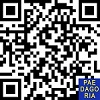PENERAPAN MANAJEMEN PENGETAHUAN DI PERGURUAN TINGGI TERBUKA DAN JARAK JAUH
Abstract
Abstrak: Perubahan yang terjadi di era disrupsi dan pasca pandemi covid-19 adalah sebuah keniscayaan. Kehidupan sosial berubah termasuk dalam pendidikan. Proses pembelajaran telah bergeser ke pembelajaran jarak jauh yang sebenarnya telah dilakukan oleh Universitas Terbuka sejak 1984. Kondisi ini memerlukan perhatian dari pemangku kepentingan di Universitas Terbuka untuk bergerak, terlebih lagi sebanyak lebih dari 31% pegawai negeri sipil akan pensiun hingga tahun 2026. Pengetahuan sebagai keunggulan kompetitif harus dikelola untuk menghadapi berbagai macam perubahan. Tujuan dari penelitian ini untuk menggambarkan bagaimana penerapan manajemen pengetahuan di Universitas Terbuka dan faktor-faktor yang memengaruhinya. Penelitian ini merupakan penelitian kualitatif, dengan melakukan wawancara kepada informan menggunakan purposive sampling. Hasil dari penelitian ini menunjukkan bahwa: 1) Universitas Terbuka telah mengimplementasikan manajemen pengetahuan yang tercermin dalam visi, misi dan tujuan organisasi juga dalam pelaksanaan tridarma perguruan tinggi: pendidikan, penelitian, dan pengabdian kepada masyarakat dan 2) Ditemukan 15 faktor internal dan 5 faktor eksternal yang memengaruhi penerapan manajemen pengetahuan di Universitas Terbuka. Perlu adanya peningkatan kesadaran dari para pegawai akan pentingnya manajemen pengetahuan, penyusunan strategi, hingga optimalisasi infrastruktur IT untuk meningkatkan daya saing perguruan tinggi.
Abstract: Changes in the disruption era and after the sudden covid-19 pandemic are an inevitability. Our social life is changing including in education. The learning process has shifted into distance learning which has been done by Indonesia Open University since 1984. The condition needs attention from Indonesia Open University stakeholders to move, moreover, over 31% of employees will retire in the next five years. Knowledge as a competitive advantage must be managed to overcome any kind of changes. The purpose of this study is describing how the implementation of knowledge management at Indonesia Open University. The study was qualitative and conducted through interviews with informants using purposive sampling. The results of this study show: 1) Indonesia Open University has implemented knowledge management that is reflected through its vision, mission, and objective as well as in the implementation of education, research, and community service and 2) It is found 15 internal factors and 5 external factors affect to knowledge management implementation. There needs to be increased awareness from employees of the importance of knowledge management, create strategy, and IT infrastructure optimalization to increase the competitiveness of institutions.Keywords
Full Text:
PDFReferences
Akter, K. M., & Banik, S. (2019). Knowledge Management Practices of Universities in Bangladesh: Lecturers’ Perception. Journal of Accounting Research, Organization and Economics, 2(1), 54–62. http://jurnal.unsyiah.ac.id/JAROE/article/view/13767
Alshahrani, A. S. (2018). Critical success factors of knowledge management in higher education institutions : a comparative study between Western Sydney University in Australia and King Fahd Security College in Saudi Arabia. https://researchdirect.westernsydney.edu.au/islandora/object/uws:46765/
Altınay, F., Altınay, M., Dagli, G., & Altınay, Z. (2019). A study of knowledge management systems processes and technology in open and distance education institutions in higher education. The International Journal of Information and Learning Technology, 36(4), 314–321. https://doi.org/10.1108/IJILT-02-2019-0020
Anatan, L. (2006). Manajemen Modal Intelektual : Strategi Memaksimalkan Nilai Modal Intelektual Dalam Technology Driven Business. Jurnal Manajemen Maranatha, 5(2), 1–10.
Asbari, M., Mayesti Wijayanti, L., Chi Hyun, C., Purwanto, A., Budi Santoso, P., Graduate Program, P., D-Lantai, G., Thamrin Boulevard, J. M., Dua, K., & Karawaci, K. (2019). Effect of Tacit and Explicit Knowledge Sharing on Teacher Innovation Capability. Dinamika Pendidikan, 14(2), 227–243. https://doi.org/10.15294/dp.v14i2.22732
Budihardjo, A. (2016). Knowledge Management Efektif Berinovasi Meraih Sukses (1st ed.). Prasetiya Mulya Publishing.
Bungin, B. (2007). Penelitian Kualitatif: Komunikasi, Ekonomi, Kebijakan Publik, dan Ilmu Sosial Lainnya. Prenadamedia.
Canonico, P., de Nito, E., Esposito, V., Pezzillo Iacono, M., & Consiglio, S. (2020). Knowledge creation in the automotive industry: Analysing obeya-oriented practices using the SECI model. Journal of Business Research, 112. https://doi.org/10.1016/j.jbusres.2019.11.047
Devi Ramachandran, S., Chong, S. C., & Wong, K. Y. (2013). Knowledge management practices and enablers in public universities: A gap analysis. Campus-Wide Information Systems, 30(2), 76–94. https://doi.org/10.1108/10650741311306273
Fauziah, N. M., & Prasetyo, A. W. (2019). ASN CORPORATE UNIVERSITY: SEBUAH KONSEP PENDIDIKAN DAN PELATIHAN PADA ERA DISRUPTIF. https://jurnal.bkn.go.id/index.php/asn/article/download/225/195
Gao, T., Chai, Y., & Liu, Y. (2017). A review of knowledge management about theoretical conception and designing approaches. International Journal of Crowd Science, 2(1), 42–51. https://doi.org/10.1108/IJCS-08-2017-0023
Mahdi, O. R., Nassar, I. A., & Almsafir, M. K. (2019). Knowledge management processes and sustainable competitive advantage: An empirical examination in private universities. Journal of Business Research, 94, 320–334. https://doi.org/10.1016/J.JBUSRES.2018.02.013
Mohajan, H. K. (2016). Knowledge is an Essential Element at Present World. International Journal of Publication and Social Studies, 1(1), 31–53. https://doi.org/10.18488/journal.135/2016.1.1/135.1.31.53
Muthuveloo, R., Shanmugam, N., & Teoh, A. P. (2017). The impact of tacit knowledge management on organizational performance: Evidence from Malaysia. Asia Pacific Management Review, 22(4), 192–201. https://doi.org/10.1016/J.APMRV.2017.07.010
Nonaka, I., Toyama, R., & Konno, N. (2000). SECI, Ba and Leadership: a United Model of Dynamic Knowledge Creation. www.elsevier.com/locate/lrp
RistekDikti. (2019). Penyelenggaraan pendidikan jarak jauh. 16, 19–45.
Rusilowati, U., & Ciptaningsih, E. M. S. S. (2016). Implementasi Manajemen Pengetahuan (Knowledge Management)* Studi kasus pada Fakultas Ekonomi Universitas Pamulang. Proceeding Konferensi Nasional Riset Manajemen X, 1–19. http://eprints.unpam.ac.id/1431/
Samsiah, S., & Marlina dan Hendri Ali Ardi, E. (2018). Pengaruh Knowledge Management Dan Teknologi Informasi Terhadap Keunggulan Bersaing Dan Kinerja Universitas. Jurnal Manajemen, 22(2), 154–167. https://doi.org/10.24912/JM.V22I2.356
Soltani, Z., & Navimipour, N. J. (2016). Customer relationship management mechanisms: A systematic review of the state of the art literature and recommendations for future research. Computers in Human Behavior, 61, 667–688. https://doi.org/10.1016/J.CHB.2016.03.008
Sopandi, O. D., Politeknik, S., Bandung, N., & Saud, U. S. (2016). IMPLEMENTASI KNOWLEDGE MANAGEMENT PADA PERGURUAN TINGGI. Jurnal Administrasi Pendidikan, 23(2), 1. https://ejournal.upi.edu/index.php/JAPSPs/article/view/5629
Sumantri, A. (2021). Kampus Dituntut Ciptakan Lulusan yang Adaptif dan Kreatif. In medcom.id. https://www.medcom.id/pendidikan/news-pendidikan/DkqlQw8b-kampus-dituntut-ciptakan-lulusan-yang-adaptif-dan-kreatif
Ting, C., & Xue, S. (2017). A Literature Review on Knowledge Management in Organizations. Research in Business and Management, 4(1), 30–41. https://doi.org/10.5296/RBM.V4I1.10786
Tjakraatmadja, J. H., & Kristinawati, D. (2017). Strategi Implementasi Knowledge Management. Penerbit ITB.
Veer Ramjeawon, P., & Rowley, J. (2017). Knowledge management in higher education institutions. The Learning Organization, 24(5), 366–377. https://doi.org/10.1108/TLO-03-2017-0030
Veer Ramjeawon, P., & Rowley, J. (2018). Knowledge management in higher education institutions in Mauritius. International Journal of Educational Management, 32(7), 1319–1332. https://doi.org/10.1108/IJEM-05-2017-0129/FULL/XML
Yuniarsih, T., & Amartiwi, H. (2019). Implementasi Manajemen Pengetahuan pada Perguruan Tinggi Swasta di Kabupaten Garut. Jurnal Wacana Kinerja: Kajian Praktis-Akademis Kinerja Dan Administrasi Pelayanan Publik, 22(2). https://doi.org/10.31845/jwk.v22i2.166
DOI: https://doi.org/10.31764/paedagoria.v14i1.12907
Refbacks
- There are currently no refbacks.
Copyright (c) 2023 Sarah Fadilla

This work is licensed under a Creative Commons Attribution-ShareAlike 4.0 International License.
Paedagoria : Jurnal Kajian, Penelitian dan Pengembangan Kependidikan
Fakultas Keguruan & Ilmu Pendidikan | Universitas Muhammadiyah Mataram.
_______________________________________________
 | Paedagoria : Jurnal Kajian, Penelitian dan Pengembangan Kependidikan |
______________________________________________
CURRENT INDEXING:
EDITORIAL OFFICE:

















